Honors Differential Equations Online Course for Academic Credit
Honors Differential Equations can be best described as "Higher-Level Integration Theory" at the Honors course level. The simplest Differential Equations have solutions that are simple Integrals as you learned in Calculus II. But very quickly the Differential Equations become more complicated, and so, too, are the solutions. Physicists think of Differential Equations as the equations that get spit out from their analysis of the various physics situations, and thus need to be solved to understand the physics. Unfortunately, most Differential Equations cannot be solved algebraically, but the main focus of classroom/textbook courses is usually to just try to exhaust all of the Differential Equations that can be solved by hand.
| Course Title: | Honors Computational Differential Equations |
| Catalog Number: | DMAT 322 |
| Credits: | 4 Semester Credit Hours |
| Syllabus PDF: | PDF Syllabus for Honors Computational Differential Equations |
| Delivery: | Fully Online, Asynchronous, Self-Paced |
| Click Here to Enroll in DMAT 322 - Honors Computational Differential Equations | |
Our Honors Differential Equations online course via Distance Calculus @ Roger Williams University takes a different approach: what do these differential equations mean? What do their solutions mean? What do their graphical or numerical solutions mean? Using a power tool like Mathematica, we are not bound by just those differential equations that have hand-calculated solutions, but rather all differential equations are fair game, and we investigate the concepts of Differential Equations from a laboratory-science point of view.
The first course in a study of Differential Equations is often called Ordinary Differential Equations; other names for this course include:
- Introductory Differential Equations
- Ordinary Differential Equations
- A First Course in Differential Equations
- Single-Variable Differential Equations
Nationally, "Honors" courses usually are centered on a mathematically rigorous development of the concepts of calculus, bringing many advanced topics from upper division courses such as Advanced Calculus and Real Analysis into the freshman honors calculus courses. While this may be a worthwhile approach for students who seek to become mathematics majors, it creates, for many students, an inflated level of course difficulty of questionable benefit to related fields of study.
Our approach to Honors courses is built upon a distinctly different educational philosophy:
- Freshman & Sophomore Calculus is NOT the correct math level to increase rigor
We believe that mathematical rigor is learned after exposure to the calculus, in the upper division, after some time and maturing of mathematical thought is allowed to organically develop. No student ever understood the concept of a derivative because the natural numbers were first axiomatically developed. - Honors means DEEPER, not just HARDER
In mathematics, the potential for making any course harder is a rather simple proposition. Work SMARTER, not HARDER mandates that an honors course should not be more difficult just to say it is. A true honors student wants to go deeper into the topics, not flirt with academic demoralization via some mathematical bootcamp experience. - Technical Writing Curriculum
While axiomatic development has its place in upper division math, core improvement of technical writing skills will benefit all students in all disciplines with immediate effect. If calculus is supposed to be mathematical preparation for science, technology, and engineering related fields, then development of technical writing skills should be as important as computational prowess. - Course Term Paper
Each Honors course student will write a 10-20 page term paper on a topic chosen in collaboration with the course instructor, empowering the student to simultaneously improve technical writing skills and deepen knowledge in the student's chosen academic field via a uniquely creative exercise that will transcend the traditional course boundaries.
In summary, our Honors courses go deeper and broader in the curriculum, offer a notch more challenging course work set, and featuring a technical writing curriculum that truly prepares the student for further academics in the sciences.
Completion of DMAT 322 - HONORS Computational Differential Equations earns 4 academic credit semester hours with an official academic transcript from Roger Williams University, in Providence, Rhode Island, USA, which is regionally accredited by the New England Commission of Higher Education (NECHE), facilitating transfer of credits nationwide to other colleges and universities.
Differential Equations Online Course Introductory Videos
Differential Equations Online Course Introduction
Differential Equations can be thought of as "the task of integration, with (more and more) complications".
Simple algebraic integration of a function f(x) can be re-interpreted in terms of this integral being the solution of a differential equation y' = f(x), and our task is to solve for y - as integration is the "inverse" operation of differentiation, we see that y is the algebraic integral of f(x).
The equation y' = f(x) is the most basic differential equation possible. Quickly we are lead to investigate more complicated forms of equations involving differentiation, for example: y' = y + f(x), which asks: find a function y = y(x) which has the property that its derivative y' is equal to itself y added to a function f(x). Not an easy question before starting the Differential Equations course, but upon completion of this course, such questions - and exponentially more difficult and complex such equations - are answered with skill and understanding.
More than just an "algebraic game involving integrals", the topic of Differential Equations studies not only the algebraic solutions of such equations (when possible!), but also the qualitative understanding of the properties and solutions of these equations.
Traditional Differential Equations courses often are dedicated to learning these "expanded integration techniques" to study the solutions of these equations purely from an algebraic point of view. While this approach has its merits, the types of differential equations encountered "in the real world" (i.e physics, chemistry, engineering, etc) require solution and analysis techniques beyond what is possible via algebra alone.
The course curriculum for our Differential Equations online course is based upon Differential Equations&Mathematica by Carpenter/Davis/Uhl, and utilizes the high-powered computer algebra and graphing system Mathematica™ by Wolfram Research. Engaging the algebraic investigations of the classes of differential equations studied on briefly, the curriculum moves quickly to investigating the much richer concepts accessible via Mathematica™ and its numerical and graphical differential equation solvers, opening up the introductory study of differential equations beyond the traditional textbook on the subject.
Roger Williams University Course Catalog Listing: DMAT 322 - Honors Computational Differential Equations
Course: DMAT 322
Course Title: Honors Computational Differential Equations
Transcript Course Title (30 Characters Max:): Honors Comp Differential Eqns
Course Description: A first course in the study of differential equations with emphasis on modern software computational techniques with geometrical and qualitative interpretations. Topics include first, second, and higher-order ordinary differential equations, analysis of forcing functions, Laplace Transforms, convolution integral techniques, Fast Fourier Transforms and data approximations, systems of differential equations, classical algebraic solution methods, power series solutions. Honors courses will include greater breadth and depth of topics, and develop technical writing skills, culminating in a mathematical term paper on an approved topic. [4 Semester Credits]
Prerequisite: Successful completion with grade B or higher in Calculus II or equivalent, or consent of instructor.
E-Textbook: Differential Equations & Mathematica by Davis/Porta/Uhl
Software: Mathematica
PDF Course Syllabus: Detailed Course Syllabus in PDF for DMAT 322 - Honors Computational Differential Equations
DMAT 322 - Honors Computational Differential Equations - Learning Outcomes
- 1. To understand the core construction of the differential equation, and its classification parts
- 2. To understand the role of the forcing function in differential equations
- 3. To understand, observe, and compute the steady state solutions for a differential equation
- 4. To understand, observe, and compute solutions of differential equations with a variety of forcing functions, including DiracDelta, step, oscillatory, and others
- 5. To understand, observe, and compute solutions of differential equations with a variety of forcing functions, including DiracDelta impulses, step, oscillatory, et al.
- 6. To understand and compute solutions of second order differential equations oscillators and how forcing functions affect their solutions
- 7. To understand and compute manual solutions of first and second order differential equations using classical techiques
- 8. To understand and compute with the Laplace Transform method
- 9. To understand and compute graphical and numerical solution methods of differential equations
- 10. To understand and compute solutions of linear systems of differential equations
- 11. To understand and compute polynomial approximations to solutions of differential equations
- Honors Topics:
- 12.* To understand and compute the linearization and equilibrium point solution methods
- 13.* To understand and compute the classic examples of Van der Pol, Lorenz, Hamiltonian Systems
- 14.* To understand an introduction to partial differential equations
- 15.* To understand and compute solutions to the Heat and Wave Equations.
- 16.* To develop mathematical technical writing skills, culminating in a term paper on an approved topic
DMAT 322 - Honors Computational Differential Equations - Syllabus of Topics
1. Getting Started 1.1. Email and Chat 1.2. Learning About the Course 1.3. Required Hardware 1.4. Software Fundamentals 2. Exponential Differential Equations 2.1. Unforced DEs 2.2. Forced DEs 2.3. Steady State 2.4. Personal Finance 2.5. Step Function and Dirac Delta Function 2.6. Tangent Vectors 2.7. Initial Conditions 2.8. Integration Factors 3. Second-Order Differential Equations 3.1. Overdamped and Underdamped Oscillators 3.2. Linear Forced and Unforced Oscillators 3.3. Homogeneous and Inhomogeneous Equations 3.4. Convolution Method 3.5. Characteristic Equations 3.6. Euler's Formula 3.7 Impulse Forcing 3.8 Dirac Delta Convolutions 3.9 Springs and Electrical Charges 3.10 Higher Order Equations 4. Laplace Transforms 4.1 Laplace Transforms of First and Second Order Equations 4.2 Fourier Analysis and Fourier Fit Approximations 5. Graphical Analysis of Differential Equations 5.1 Euler's Method 5.2 Flow Plots and Trajectories 5.3 Preditor-Prey Model 5.4 Logistic Harvesting 6. First-Order Differential Equations 6.1 Autonomous Equations 6.2 Non-Autonomous Equations 6.3 Separation of Variables Solving Method 7. Systems of Differential Equations 7.1 Flows and Trajectories 7.2 Conversion Between Higher Order ODEs and Systems 7.3 Relationship to Eigenvalues and Eigenvectors 8. Power Series Solutions of Differential Equations 8.1 Recursion Relations 8.2 Comparing Series Solution to Numerical Solution 8.3 Barriers 9.* Linearization of Nonlinear Differential Equations 9.1* Equilibrium Points 9.2* Lyapunov's Rules 9.3* Pendulum Oscillator 9.4* Linearizations and Gradients 9.5* Van der Pol Oscillator 9.6* Hamiltonian Systems 9.7* Chaos and the Lorenz Attractor 10.* Heat and Wave Equations 10.1* Examples and Calculations of the Heat and Wave Equations 10.2* Introduction to Partial Differential Equations 10.3* Fourier Analysis and Fourier Fit Approximations 11.* Mathematical Writing 11.1* Cogent writing 11.2* Mathematical Presentation 11.3* Term Paper Topic and Research
High School Students - Differential Equations Course
Many advanced high school students who have completed their AP Calculus AB and BC courses, which are equivalent to Calculus I and Calculus II, respectively, often find themselves in their senior year of high school with no further courses in mathematics to take at their high school.
There are no further AP Calculus courses beyond the AP Calculus BC (Calculus II) course.
An excellent next academic move for these advanced high school mathematics students is to take one or more of the following Distance Calculus courses:
- DMAT 355 - Multivariable Calculus
- DMAT 322 - Differential Equations
- DMAT 335 - Linear Algebra
- DMAT 311 - Probability Theory (Calculus-Based Statistics)
Here is a video discussing some options for these advanced high school students.
Advanced High School Math Plan for Senior Year
After AP Calculus
Differential Equations Online Course Credit: 3 semester university-level credit hours
What are Ordinary Differential Equations?
"Ordinary" means that the functions we are studying are functions of one variable. Usually: y = f(x)
Historically, this course was called "Ordinary Differential Equations", often abbreviated as ODE, and you will see ODE used interchangeably with DE to abbreviate the term "Differential Equations".
What is a non-Ordinary Differential Equation? Those are called Partial Differential Equations, and they involve looking at equations involving partial derivatives of functions of two or more variables, like this: z = f(x,y).
Partial Differential Equations is usually a junior-level mathematics course that all mathematics majors, and many physics and engineering majors, will take to learn about the next steps in the study of differential equations.
The term "ordinary" in Ordinary Differential Equations helps you identify the course level of the Differential Equations course you might be required to take. This Differential Equations online course - DMAT 322 - is the first course on ordinary differential equations.
Colloquially, you may hear other students refer to this course as "Diff-E-Q" or "DiffyQ".
There is also a higher, junior level course on Differential Equations - usually referred to "Advanced Differential Equations", or "Intermediate Differential Equations", which does continue the study of ordinary differential equations, but at a more advanced level, and quite distinct from the partial differential equations courses. Our DMAT 322 - Differential Equations is not considered to be one of these higher junior-level and above courses.
Differential Equations Examples of the Curriculum
Below are some PDF "print outs" of a few of the Mathematica™ notebooks from Differential Equations&Mathematica by Carpenter/Davis/Uhl. Included as well is an example homework notebook completed by a student in the course, demonstrating how the homework notebooks become the "common blackboards" that the students and instructor both write on in their "conversation" about the notebook.
- Sample Curriculum PDF DE.01.B3 - Basics - Steady State Solutions
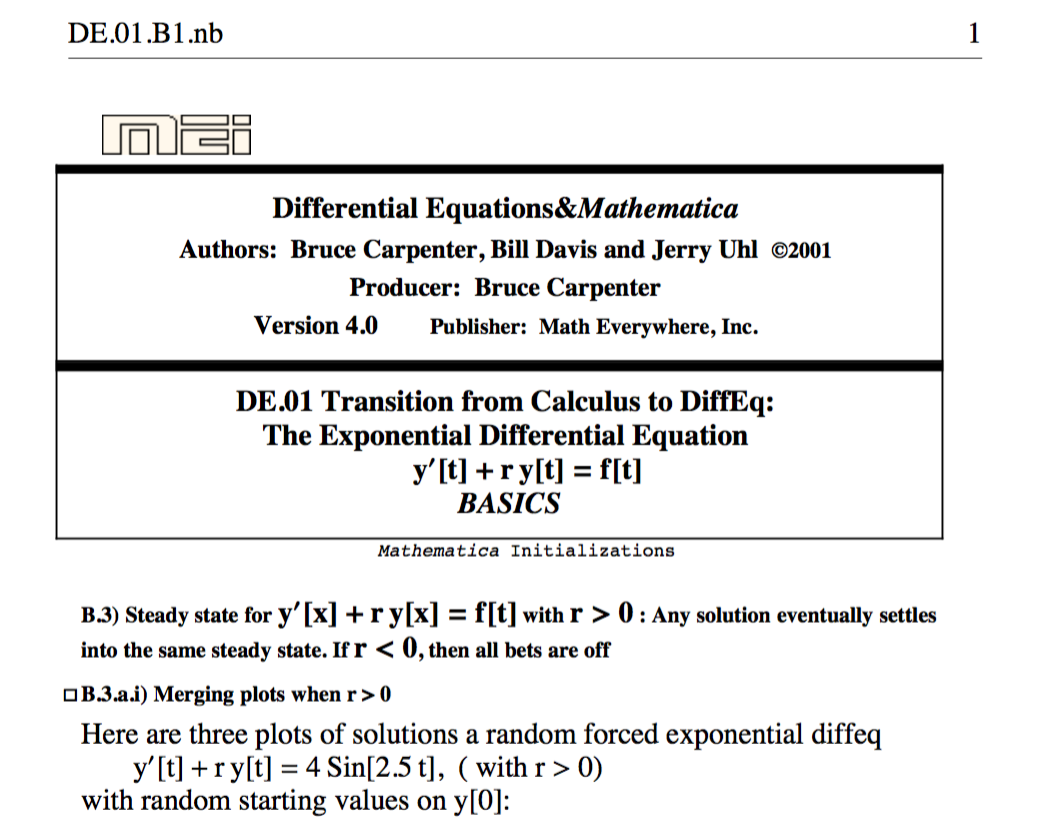
- Screencast Help Video
- Homework Notebook Example PDF DE.02.G1 - Using the Convolution Integral
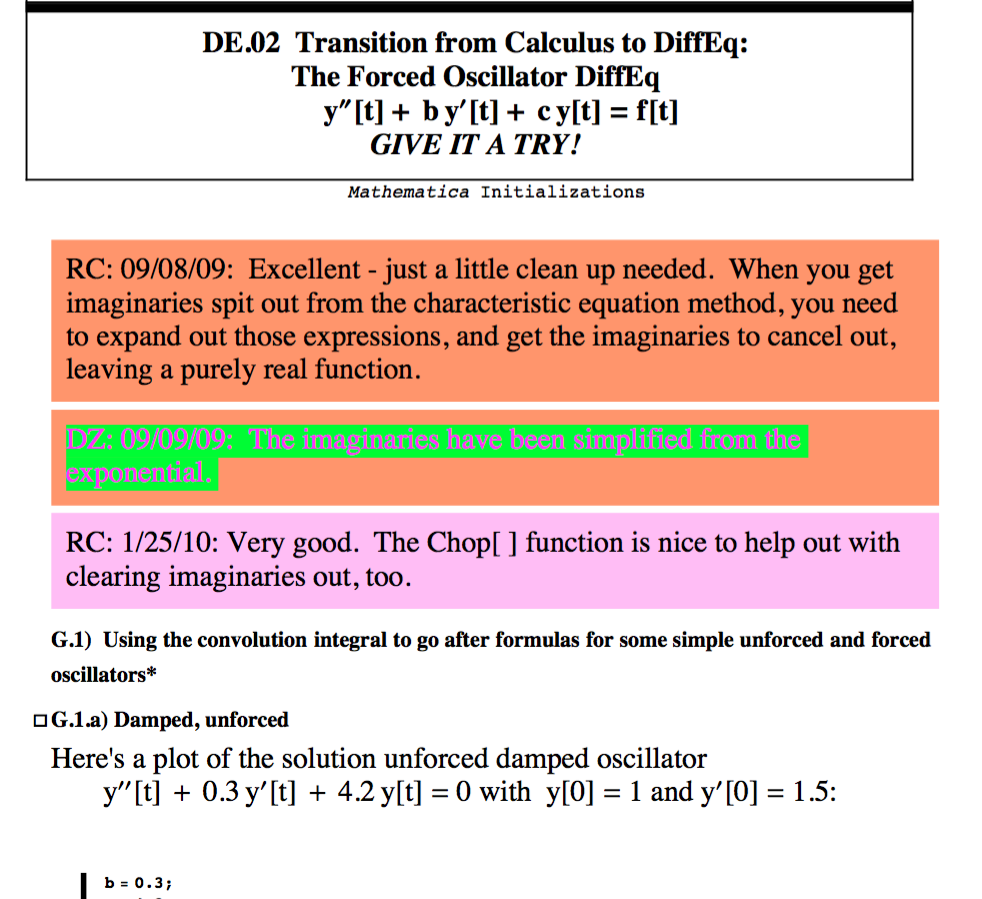
That Looks Like Programming Code!
Yes, Mathematica™ is a syntax-based computer algebra system - i.e. the instructions to generate the graphs and computations look like a programming language code (which it is).This course is not a course on programming. We do not teach programming, nor do we expect the students to learning programming, or even to know anything about programming. The mathematics is what is important in this course, not the code.
With that tenet in mind, the authors of the Differential Equations&Mathematica courseware have designed the explanation notebooks (Basics & Tutorials) and the homework notebooks (Give It a Try) in such a way as to make it easy to Copy/Paste from the explanations into the homework notebooks, and make minor changes (obvious ones) to produce the desired similar (but different) output. In this way, we are able to stick strictly to the mathematics at hand, and deal with the programming code as minimally as possible.
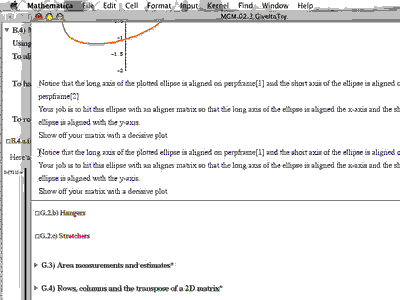
Differential Equations Online Course Credit: 3 semester university-level credit hours
Distance Calculus - Student Reviews





Date Posted: Dec 20, 2019
Review by: Bill K.
Courses Completed: Calculus I, Calculus II, Multivariable Calculus, Linear Algebra
Review: I took the whole calculus series and Linear Algebra via Distance Calculus. Dr. Curtis spent countless hours messaging back and forth with me, answering every question, no matter how trivial they might seem. Dr. Curtis is extremely responsive, especially if the student is curious and is willing to work hard. I don't think I ever waited much more than a day for Dr. Curtis to get a notebook back to me. Dr. Curtis would also make videos of concepts if I was really lost. The course materials are fantastic. If you are a student sitting on the fence, trying to decide between a normal classroom class or Distance Calculus classes with Livemath and Mathematica, my choice would be the Distance Calculus classes every time. The Distance Calculus classes are more engaging. The visual aspects of the class notebooks are awesome. You get the hand calculation skills you need. The best summary I can give is to say, given the opportunity, I would put my own son's math education in Dr. Curtis's hands.
Transferred Credits to: None




Date Posted: Jan 12, 2020
Review by:
Courses Completed: Calculus I, Calculus II
Review: I needed to brush up on my high school calculus and finally take Calc II before starting a graduate program that needed them as prereqs. This was perfect choice to fit in that summer. Got done at fast pace that I wanted and needed. Also had added bonus of one on one feedback and help when needed. Video lessons were better than many on campus instructors in large lecture settings. Recommend for anyone needing to satisfy prereqs at home institution.
Transferred Credits to: University of Michigan





Date Posted: Dec 9, 2019
Review by: Louisa A.
Courses Completed: Calculus I
Review: My microeconomics class required college-level calculus as a prerequisite, and I didn't want to wait until next year to take the class. So, I took DC's Calculus I class over the summer, so I could register for econ when I got back to school this fall. I actually think I got more help taking the class online than I would have in the huge lecture classes here. Prof. Curtis was really clear in explaining concepts and talking me through the topics that I was having trouble with. It took me about 10 weeks to finish the class, which didn't seem too long and didn't feel rushed. My friends who are in calculus now, trying to finish the prereq, are pretty jealous!
 Freshman Math Courses
Freshman Math Courses
- Applied Calculus for Business [3 credits] [3CR]
- Applied Calculus for Life Science [3 credits] [3CR]
- Calculus I[4 credits] [4CR]
- Calculus II[4 credits] [4CR]
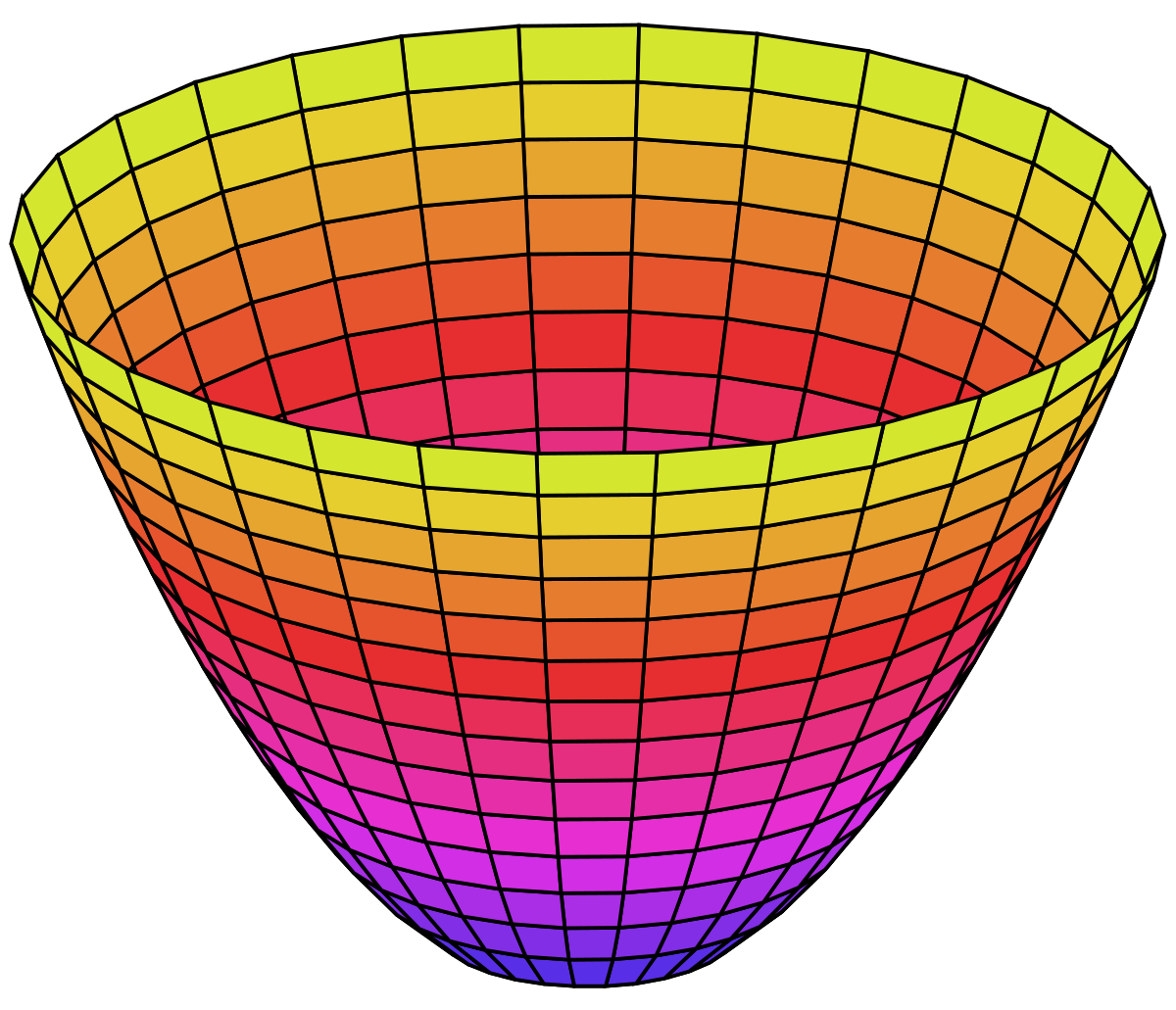 Sophomore Math Courses
Sophomore Math Courses
- Multivariable Calculus III [4 credits] [4CR]
- Differential Equations [3 credits] [3CR]
- Linear Algebra [4 credits] [4CR]
- Probability Theory [3 credits] [3CR]
 Honors Math Courses
Honors Math Courses
- Honors Calculus I [5 credits] [5CR]
- Honors Calculus II [5 credits] [5CR]
- Honors Calculus I+II for Data Science [5 credits] [5CR]
- Honors Multivariable Calculus [5 credits] [5CR]
- Honors Differential Equations [4 credits] [4CR]
- Honors Linear Algebra [5 credits] [5CR]
- Honors Linear Algebra for Data Science [5 credits] [5CR]
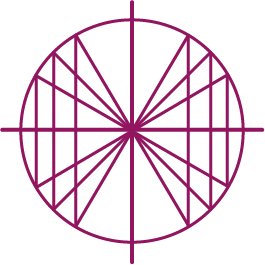 Lower Division Math Courses
Lower Division Math Courses
- Precalculus with Trigonometry [4 credits] [4CR]
- Introductory Statistics [4 credits] [4CR]
- Finite Mathematics [3 credits] [3CR]
- Discrete Mathematics [4 credits] [4CR]
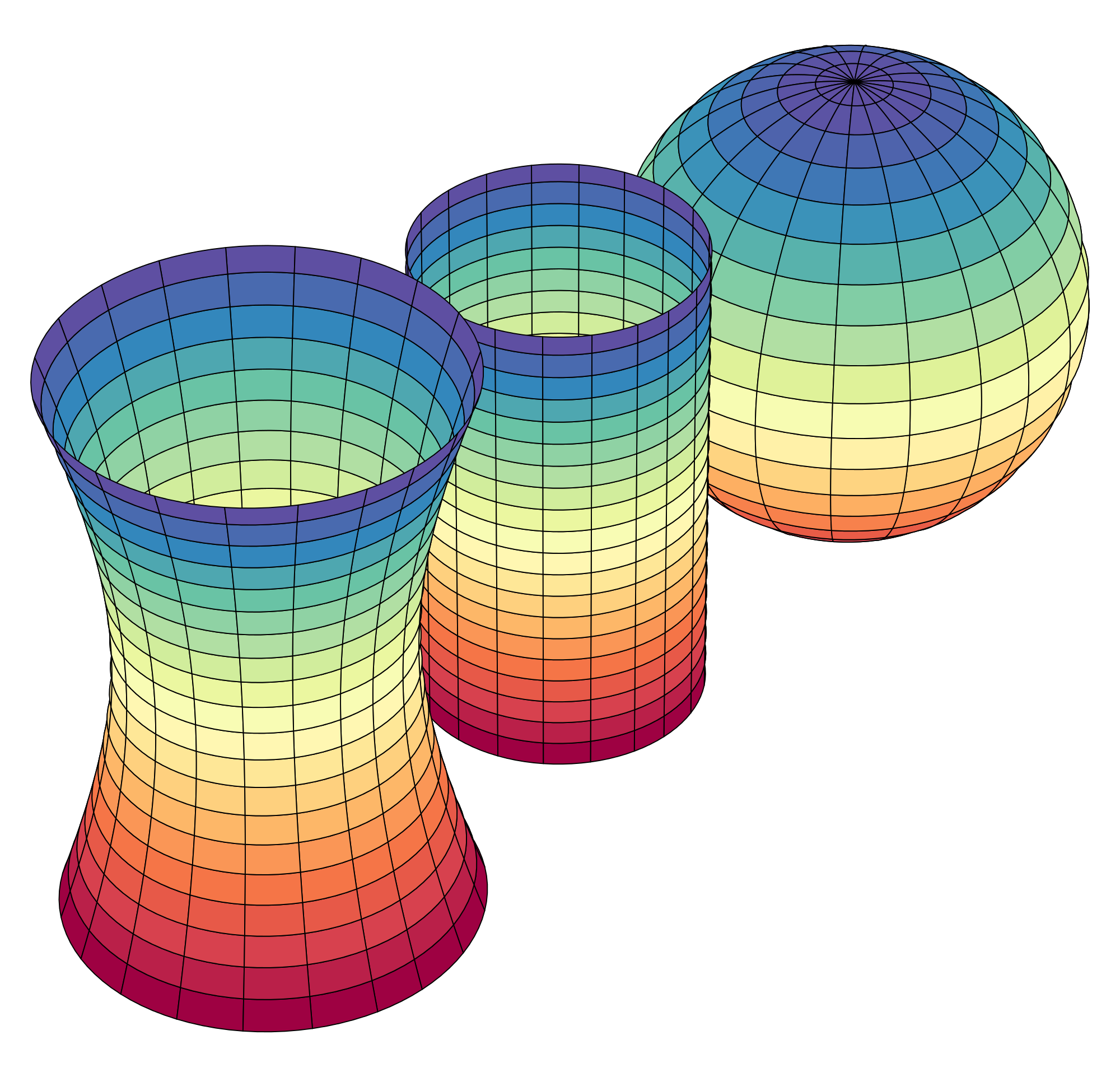 Upper Division Math Courses
Upper Division Math Courses
- Computational Abstract Algebra [4 credits] [4CR]
- Computational Differential Geometry [4 credits] [4CR]

